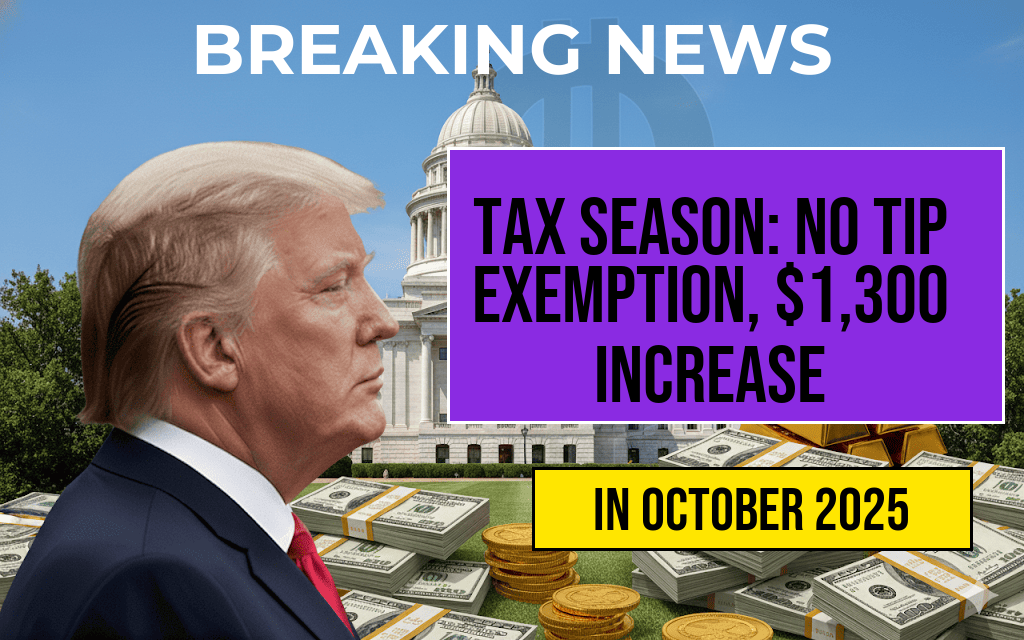Workers who earn substantial tips, especially in the hospitality and service industries, may find themselves facing a complex tax landscape. Recent updates clarify that while tips of up to $25,000 per year can be considered tax-free under certain circumstances, these amounts do not exempt individuals from paying payroll taxes. This distinction is critical for employees and employers alike, as it impacts tax planning and compliance. The Internal Revenue Service (IRS) emphasizes that tips are taxable income and must be reported, but special provisions can provide relief for large tip amounts, potentially reducing the immediate tax burden. However, payroll taxes—covering Social Security, Medicare, and unemployment insurance—remain applicable, regardless of tip amount. This duality underscores the importance of understanding how tip income interacts with federal tax laws and what steps workers can take to manage their tax obligations effectively.
Understanding the Taxability of Tips
The IRS classifies tips as taxable income, requiring workers to report all tips received during the year. This includes cash tips, tips added to credit card payments, and non-cash gratuities such as vouchers or goods. According to the IRS, employees must report tips of at least $20 per month to their employer, who then withholds applicable taxes. Failure to report tips can lead to penalties, audits, or additional tax liabilities, making accurate record-keeping essential.
Thresholds and Tax-Free Tips: What Does the Law Say?
Recent guidance clarifies that tips of up to $25,000 annually may be eligible for a special tax treatment under specific conditions. This provision is designed to aid high-earning workers who receive substantial gratuities, often in luxury service settings. If certain criteria are met—such as consistent reporting and proper documentation—these tips might be considered non-taxable up to the threshold. However, this does not mean the tips are exempt from all taxes; rather, it primarily pertains to income tax considerations.
Conditions for Tax-Free Tips
- Tips must be properly reported to the employer.
- Employees should maintain detailed records of tip amounts received monthly.
- The total tips received must not exceed the specified threshold unless additional reporting and taxation provisions are followed.
It is crucial for workers to consult IRS publications or qualified tax professionals to confirm eligibility and understand the implications of these thresholds. Detailed guidance can be found on the IRS website (Publication 531).
Payroll Taxes and Large Tips: The Ongoing Obligation
While the tax-free threshold offers relief for certain income levels, payroll taxes are unaffected by tip amounts. Social Security and Medicare taxes are automatically deducted from wages and tips, regardless of whether the tip is considered taxable or tax-free. Employers are responsible for withholding and remitting these taxes, which fund critical social programs.
How Payroll Taxes Apply to Tip Income
| Component | Employee Responsibility | Employer Responsibility |
|---|---|---|
| Social Security Tax | 6.2% of wages and tips, up to wage base limit | 6.2% matching contribution |
| Medicare Tax | 1.45% of wages and tips, with no wage base limit | 1.45% matching contribution |
| Additional Medicare Tax | 0.9% on wages and tips exceeding $200,000 annually | Not applicable |
Failure to report tip income accurately can result in penalties and increased scrutiny from tax authorities. Employees should keep detailed records and report all tips to ensure compliance and avoid future issues.
Strategies for Workers and Employers
To navigate these regulations effectively, workers should:
- Maintain daily logs of tip income, including cash and credit card tips.
- Report all tips to their employer monthly, ensuring proper withholding of taxes.
- Consult with tax professionals annually to optimize their tax filings and understand any recent legislative changes.
Employers, on the other hand, can facilitate compliance by:
- Providing clear instructions and reminders to employees about reporting tips.
- Implementing robust record-keeping systems to track tip income.
- Ensuring timely and accurate withholding of payroll taxes on all tip income reported.
Implications for High-Earning Workers
For workers earning substantial tips—potentially exceeding the $25,000 threshold—tax planning becomes particularly important. While a portion of their income might be considered tax-free under specific provisions, the bulk of their earnings remain subject to standard income and payroll taxes. Ignoring reporting requirements can lead to audits, penalties, or back taxes that significantly diminish take-home pay. Staying informed about IRS rules and maintaining precise records are essential steps for these individuals.
More detailed guidance on tip taxation and payroll obligations can be found through authoritative resources such as the IRS (IRS Employee Tips) and industry-specific advisories.
Frequently Asked Questions
What is the maximum amount of tips that may be tax-free on my paycheck?
Up to $25,000 in tips may be considered tax-free, providing a potential boost to your paycheck.
Do payroll taxes still apply to tips that are tax-free?
Yes, payroll taxes still apply to all tips, even if they are tax-free up to a certain amount.
Who qualifies for the tip exemption mentioned in the article?
Workers in certain service industries, such as restaurant servers and bartenders, may qualify for the tip exemption if they meet specific IRS guidelines.
How can I ensure my tips are reported correctly for tax purposes?
It’s important to accurately report all tips to your employer and keep detailed records to comply with tax regulations and potentially benefit from tax exemptions.
Are there any limits or conditions to claim the tip tax exemption?
Yes, the $25,000 exemption applies within certain conditions, and exceeding this amount may require additional reporting and tax obligations.






